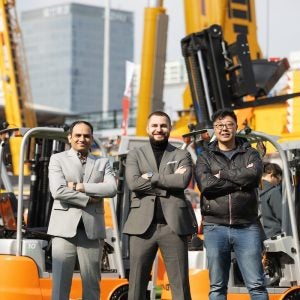Today we chat to Andy Sutherland, technical manager, Tiger Lifting, who tells us more about the CSS (Safety Screw Cam Clamp), life after covid, recyclablility and what clients are looking for.
Versatility and safety is a key factor in the clamp sector and Sutherland insists CSS is unique thanks to its torque markers because it means the end user doesn’t need to know the torque value a clamp needs to be set to, the operator just needs to tighten the clamp section onto the beam, knowing it is set at the appropriate torque and won’t dislodge itself, which makes the installation quicker and more reliable, Tiger Lifting is constantly looking for ways to make the job quicker for the end user, without limiting the effects of safety. The clamp also comes in phosphorescent (glow-in-the dark) paint for easy recognition of adequate torque tightening.
“We have seen great success with this product in the Scandinavia region and Australasia, such as South Korea and Singapore where there is the large ship building, but we also want to look at the UK sector and the North Sea sector, the construction and renewables sectors. Because it is such a versatile clamp it doesn’t have to be restricted to one particular industry,” said Sutherland.
“The main feedback we are getting from clients at the moment is that they want safer products, they want better products being offered to them, but we are always going to have that element driven by price and cost. We set ourselves at the top of the scale in terms of the safest, most reliable product but with that comes a cost. The manufacturing costs can be quite high as well as the cost of the research and development that goes into making a product.”
Going forward, Sutherland said the biggest concern for customers is ease of use and safety of products; “They always want to see that innovation and product drive and that’s somewhere where we feel we place ourselves incredibly well.
“Covid has had an affect on business. We’ve had our fair share of challenges but we have been able to remain active throughout the course of the pandemic to date but it hasn’t come without its challenges but we are seeing light at the end of the tunnel.
“One of the main drives in the future will be safer products and constant innovation on the safety side of things and that’s something we have always prided ourselves on and that won’t change. Challenges will come as the digital age improves but there will always be a market for manual hoisting, but costs will be significantly higher again.
“Recycling products is one of the things we do is in term of working with our supply chains around the world where we manufacture and sell equipment but are also aware of our customers and suppliers who have an ex amount of fleet stock and we want to look at how to upgrade their fleets and recycle that stock with our ‘buy back’ scheme, providing new products and buying back the old fleet, either through discount structures, looking to recycle or repurposing them in some way to create a greener way of doing things.”






